Number Recognition Subtraction Worksheets for Ages 4-9
12 filtered results
-
From - To
Discover our engaging Number Recognition Subtraction Worksheets designed for children ages 4-9! These worksheets help young learners build a strong foundation in subtraction while enhancing their number recognition skills. Each activity is thoughtfully crafted to ensure fun and effective learning, making math approachable for early learners. Kids will enjoy working through colorful and interactive exercises that reinforce critical concepts like counting, comparing, and problem-solving. Perfect for homeschooling, classroom use, or supplemental practice, our worksheets promote confidence in numbers and arithmetic. Start your child on the path to math success with these essential tools today! Enjoy learning through play!
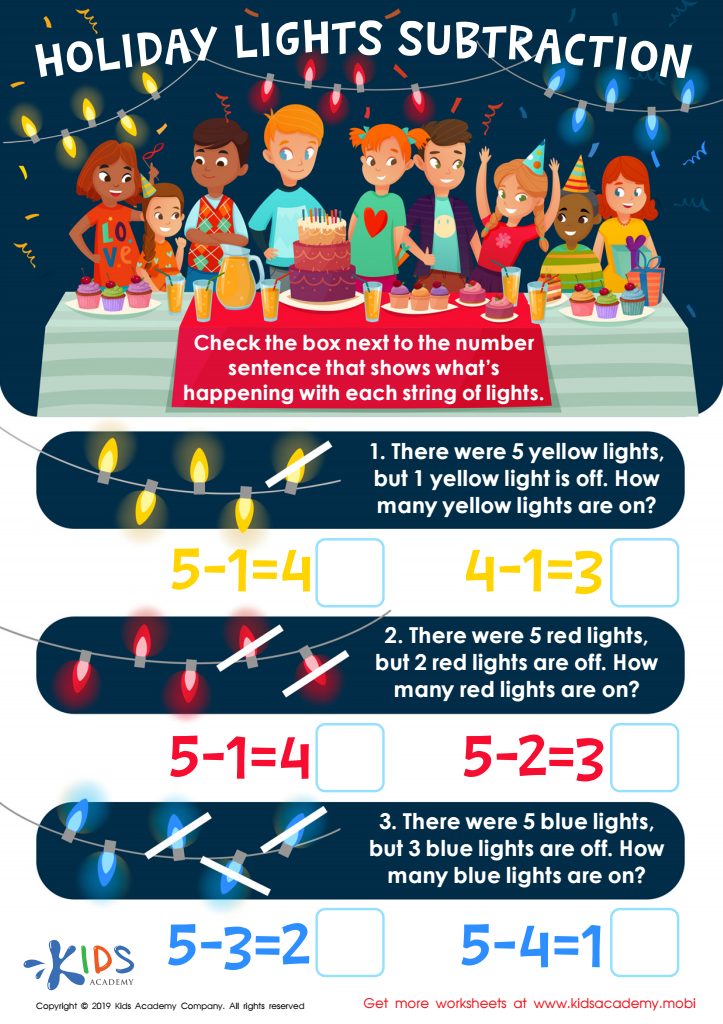

Holiday Lights Subtraction Worksheet
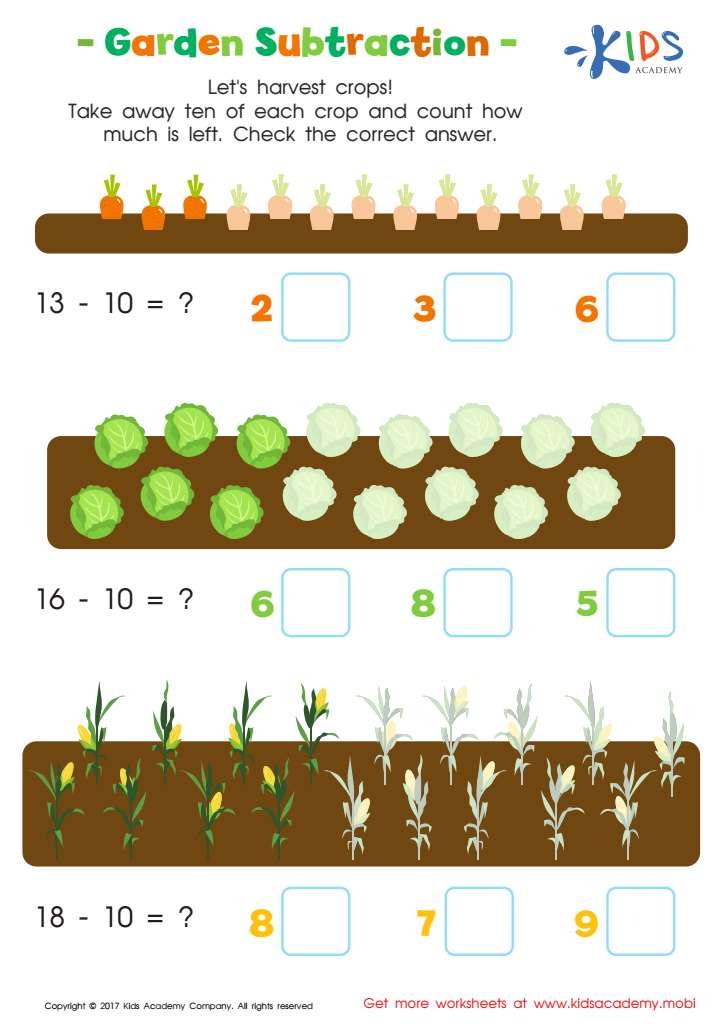

Garden Subtraction Worksheet
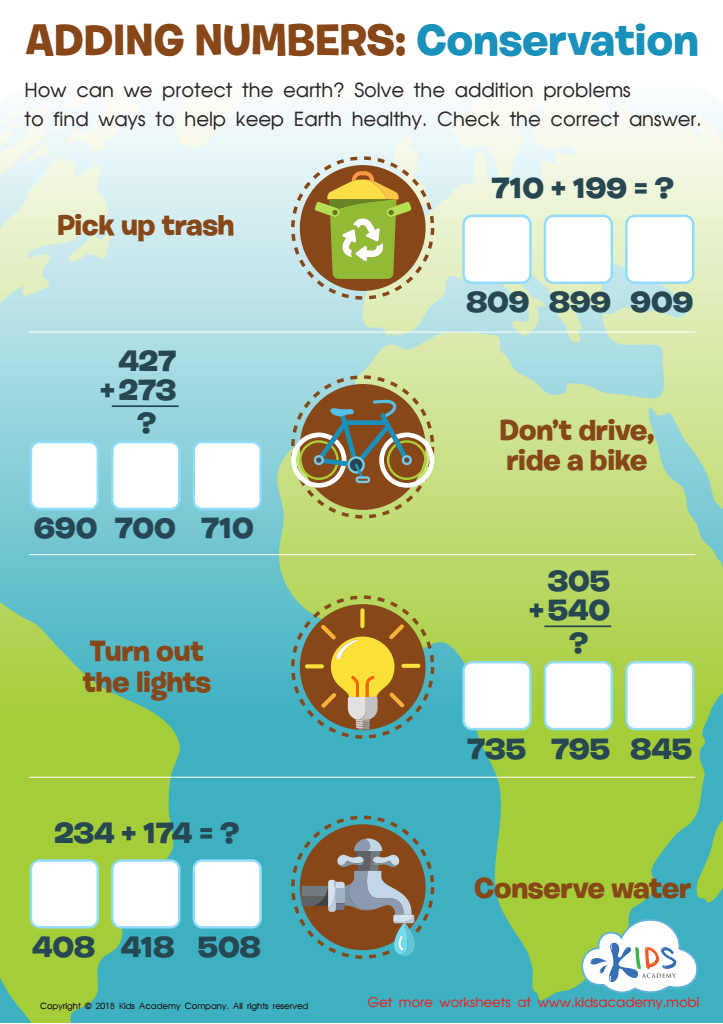

Adding Numbers: Conservation Worksheet
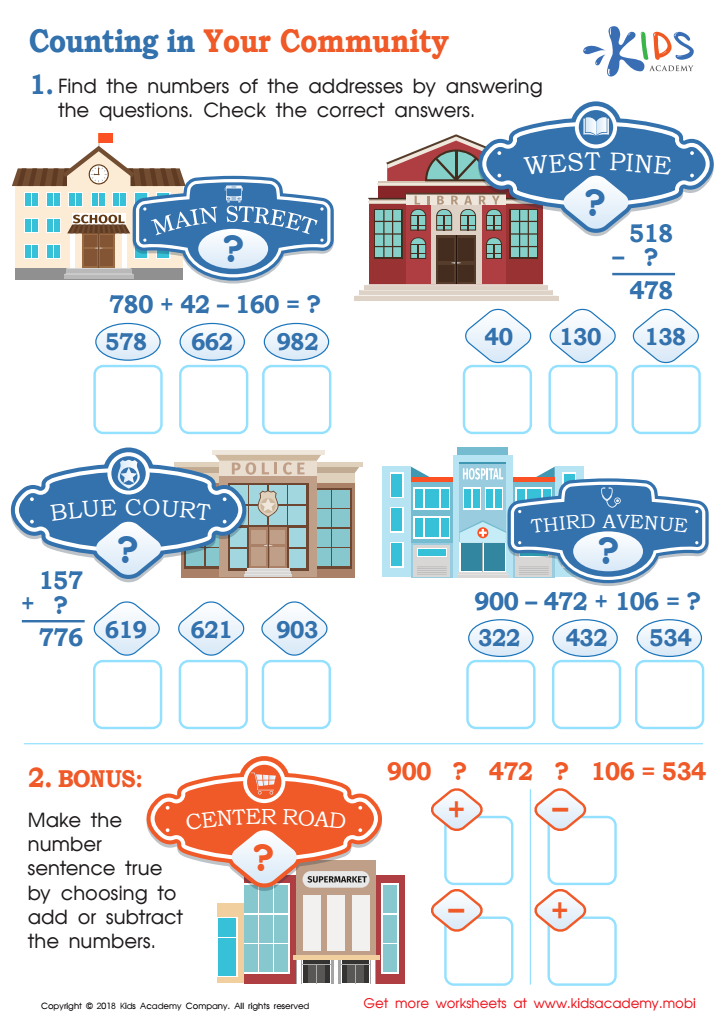

Counting in Your Community Worksheet
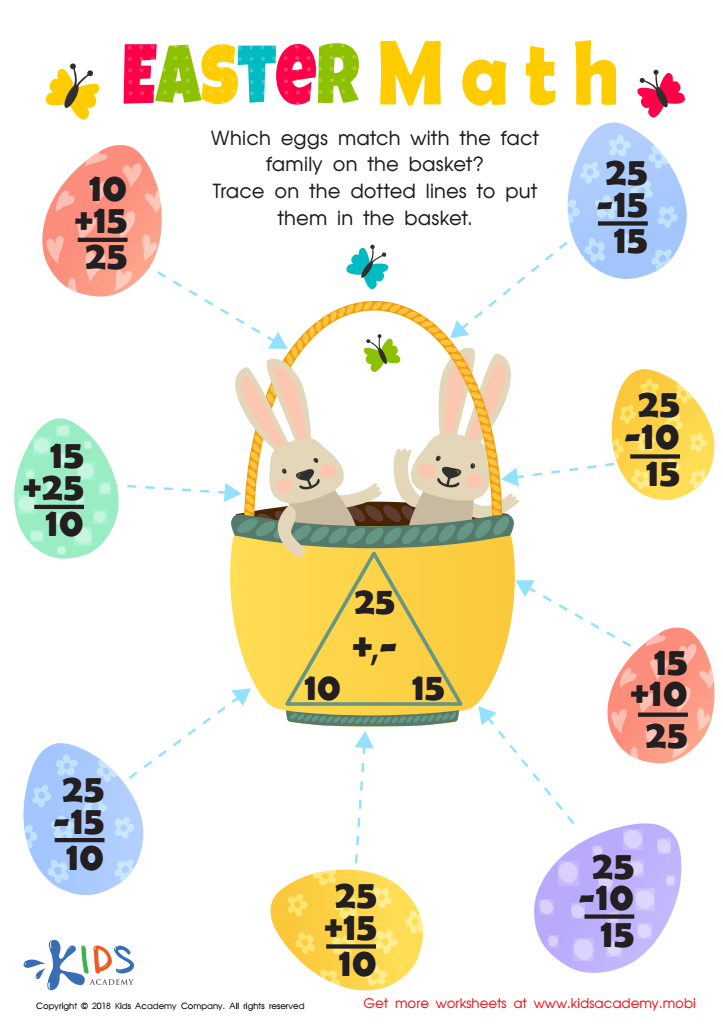

Fact Families: Easter Math Worksheet
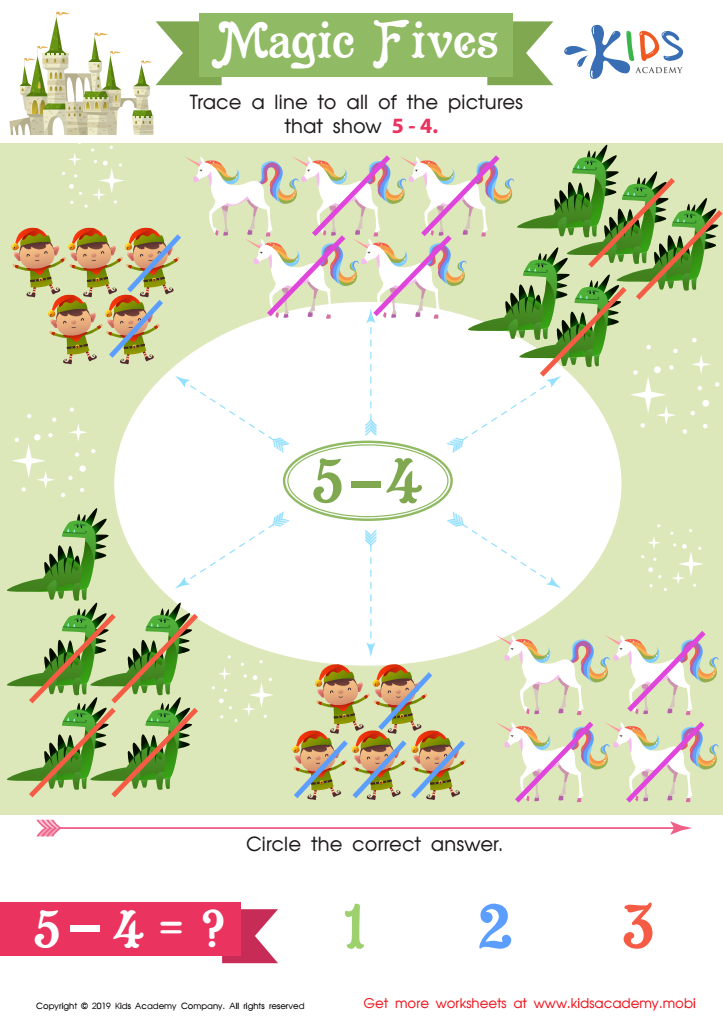

Magic Fives Worksheet
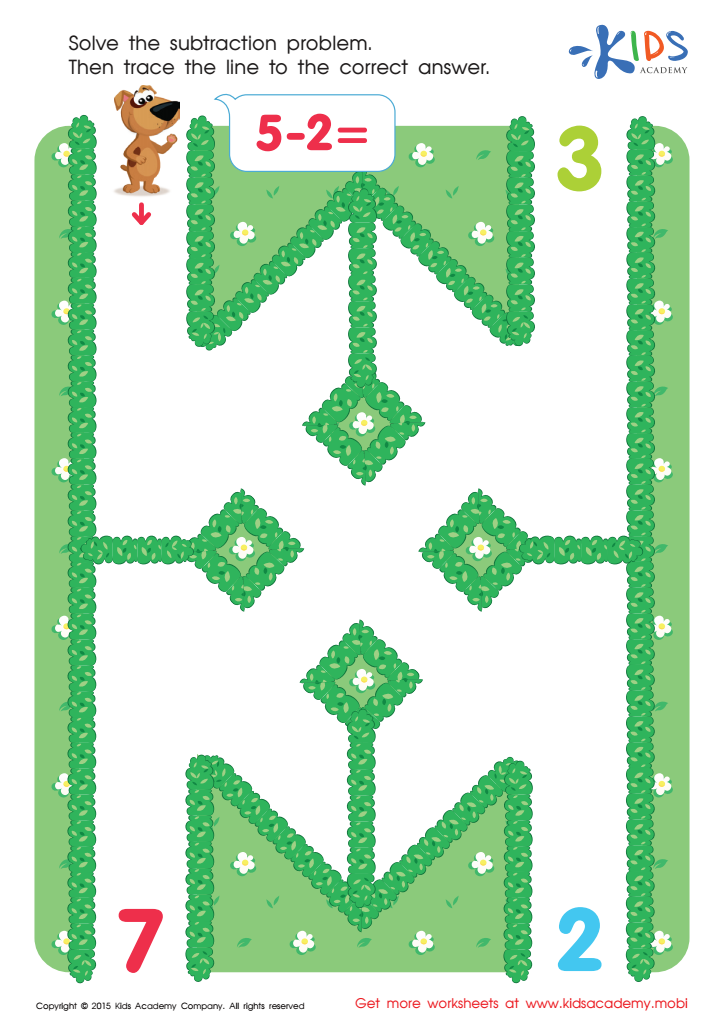

Five Minus Two Worksheet
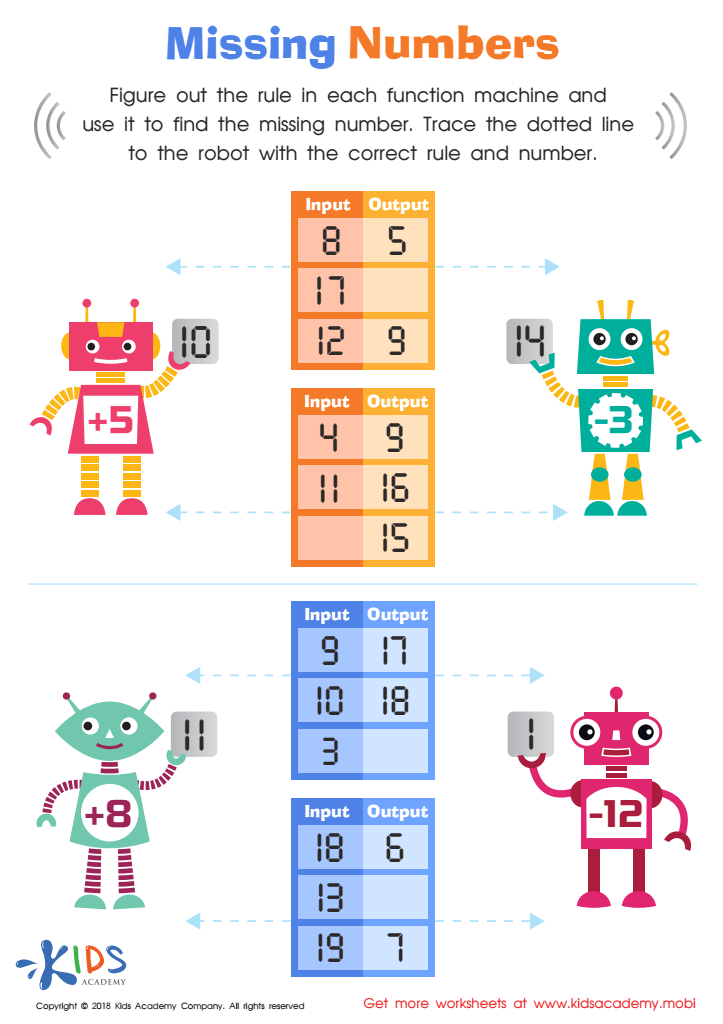

Missing Numbers Worksheet
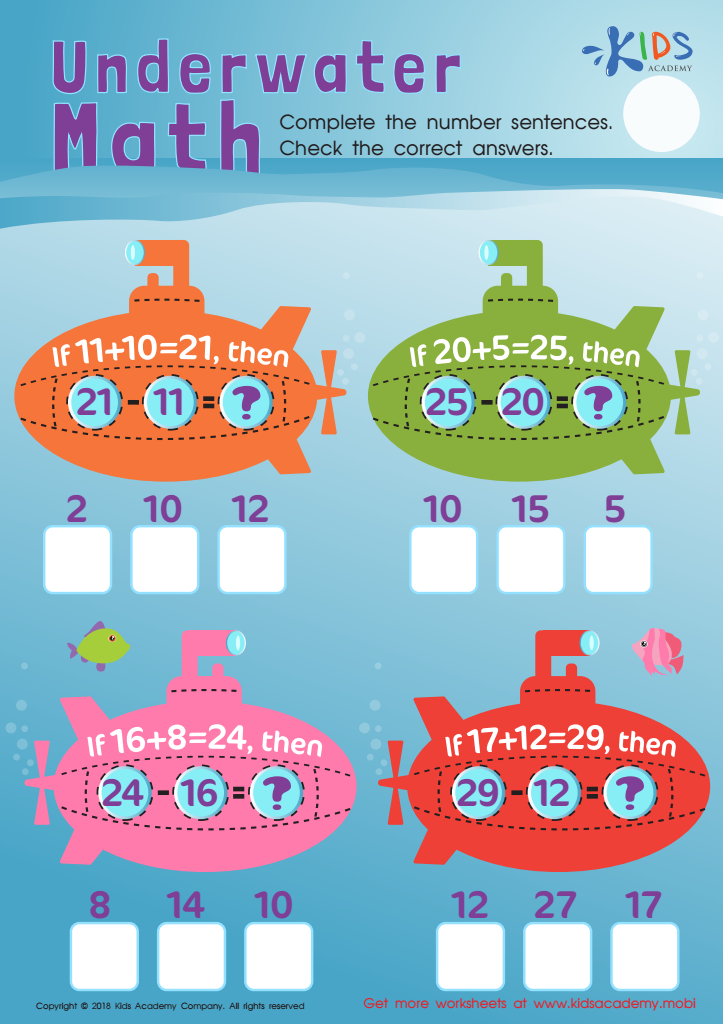

Addition and Subtraction: Underwater Math Worksheet
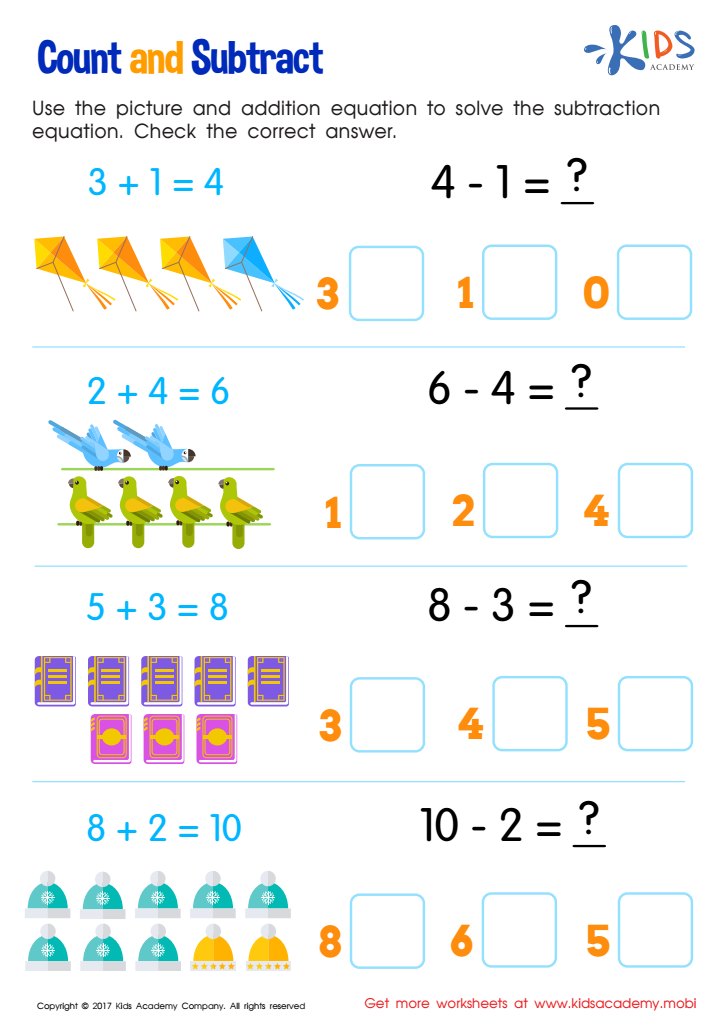

Count and Subtract Worksheet
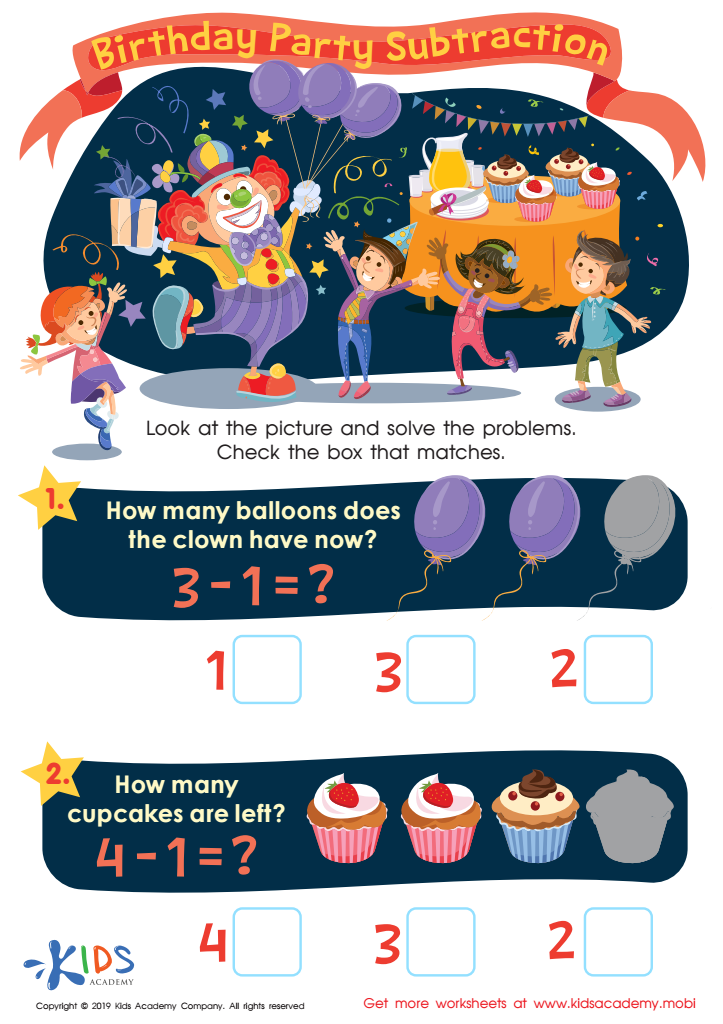

Birthday Party Subtraction Worksheet
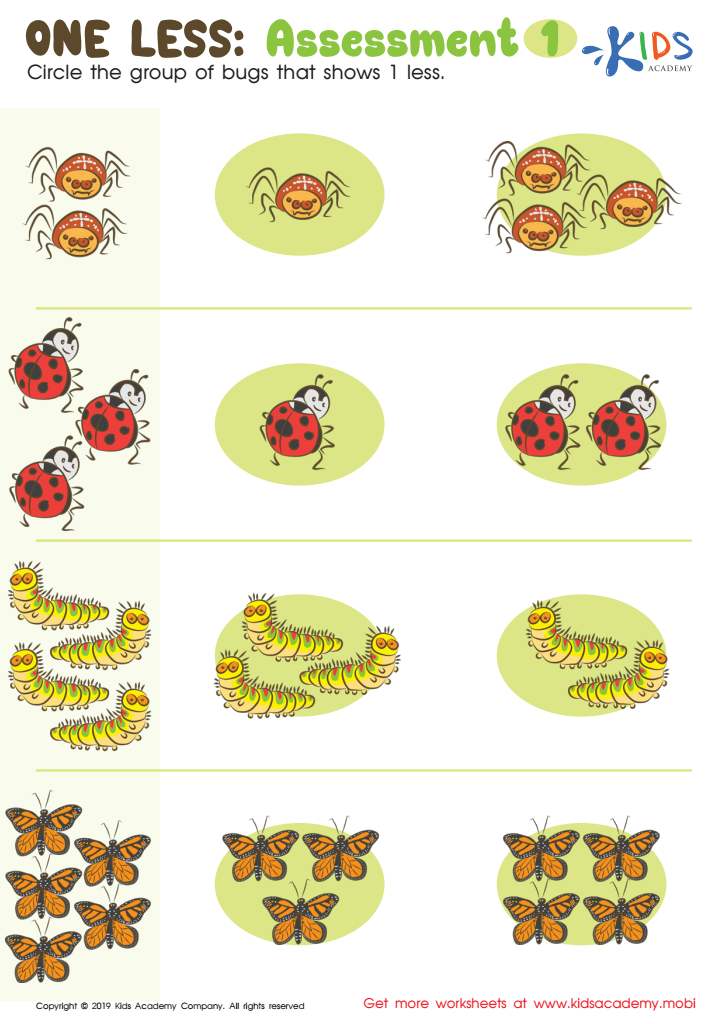

One Less: Assessment 1 Worksheet
Number recognition and subtraction are foundational skills in early mathematics, critical for ages 4-9. During these formative years, children build the cognitive framework necessary for more complex mathematical concepts. Understanding number recognition allows children to identify and comprehend the values of numbers in various contexts, facilitating their ability to engage with subtraction effectively.
When parents and teachers emphasize these skills, they empower children to develop confidence in their mathematical abilities. Mastering subtraction not only enhances their problem-solving skills but also promotes logical thinking and the ability to strategize. Engaging in activities that foster number recognition and practice subtraction can make learning interactive and enjoyable, aiding retention.
Moreover, these skills contribute to children's overall academic success. A strong mathematical foundation is linked to increased performance in STEM subjects, which play a vital role in today's job market. Additionally, learning these skills fosters emotional growth; the ability to tackle and overcome challenges builds resilience and perseverance.
By prioritizing number recognition and subtraction, parents and teachers can ensure children are well-equipped for both everyday counting tasks and future academic pursuits. This investment ultimately prepares them not only for further math proficiency but also for critical thinking in real-world situations.

 Assign to My Students
Assign to My Students
















